
The openings in a building's facade or fenestrations hold profound significance as the initial interface between a structure and its surroundings. In the context of India, where diverse climates and cultures converge, vernacular fenestration systems have long epitomised functionality beyond mere aesthetics.
The Evolution
Fenestration design traces back to its sensory essence, evident in the etymology of window itself. Across cultures, windows serve as conduits for natural elements from the sweet scents of flowers in the balconies of Swiss chalets to the cool breezes of Rajasthani havelis. Moreover, vernacular fenestrations ingeniously respond to climatic conditions, such as Kerala's timber-slatted windows countering harsh sunlight and facilitating cross ventilation. Cultural nuances further influence fenestration design, as seen in Rajasthani jharokhas and Islamic mashrabiyas maintaining privacy while modulating visual access.
However, the process of globalisation has ushered in standardisation, which, in many cases, has led to the erasure of these contextual nuances from contemporary architecture. Easy access to resources and technology has also enabled this change. Finding similar-looking glass-clad buildings in all parts of the world has now become exceedingly common.
Learning from Vernacular Architecture
Cultural wisdom holds the key to designing better fenestrations. For instance, while designing the Boat Club Apartments in a hot and humid Chennai, we translated the traditional verandahs into shaded balconies that serve as a transitional space tempering the extreme weather conditions while bringing in natural light and fresh air. In the urban setting, the balconies also connect the residents with the magnificent view of the surrounding rain trees, and allow in pleasant coastal winds.
Diese Geschichte stammt aus der February 26, 2024-Ausgabe von India Today.
Starten Sie Ihre 7-tägige kostenlose Testversion von Magzter GOLD, um auf Tausende kuratierte Premium-Storys sowie über 8.000 Zeitschriften und Zeitungen zuzugreifen.
Bereits Abonnent ? Anmelden
Diese Geschichte stammt aus der February 26, 2024-Ausgabe von India Today.
Starten Sie Ihre 7-tägige kostenlose Testversion von Magzter GOLD, um auf Tausende kuratierte Premium-Storys sowie über 8.000 Zeitschriften und Zeitungen zuzugreifen.
Bereits Abonnent? Anmelden
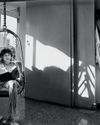
He gave the beat to the world
He would pick up the rhythms of each experience of mobility and weave them into his taals. Thus it was that he reflected joy and laughter in rhythmic cycles...such was the magic of Zakir's fingersText and photographs by Raghu Rai
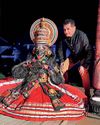
KERALA TOURISM CAMPAIGN, 1989 - TICKETS TO PARADISE
All it took was a catchy tagline-'God's Own Country'-for the world to discover Kerala's wealth of natural beauty. It remains among the best tourism ad campaigns, earning the state a place among top 10 international destinations

SPIRITUALITY - THE GURUS OF COOL
Among the cult Indian gurus, no one had a bigger hold on western minds than 'Osho' Rajneesh. He's also perhaps the role model for the enterprise-building gurus of today
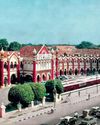
RETAIL SHOPPING - THE MALL MANIA
Shopping malls, a 1990s innovation in India, changed the way the Indian middle class shops. Their success now lies in being 'shoppertainment' destinations, offering something for everyone

CULINARY RENAISSANCE, 1978 - TANDOORI NIGHTS
ITC's Bukhara and Dum Pukht turned the world to tandoori cuisine and had an enormous impact on the F&B industry. Decades on, they are still a pit-stop for celebrities and heads of state visiting Delhi

INDIAN WRITING IN ENGLISH - REVENGE OF THE NATIVE
Rushdie lit the way but Indian writing in English has taken a life of its own in the past few decades, with translated Indian fiction most recently having its moment in the sun

INDIAN ART - A BRUSH WITH GOLD DUST
The 1990s economic liberalisation came as oxygen, lighting up the Indian art scene. Today, artworks by established masters routinely go for astronomical amounts
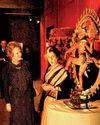
FESTIVAL OF INDIA, 1982 - CULTURE CAPITAL
The Festival of India grew into a symbol of our 'soft power', introducing our art and aesthetics to a global audience while also helping rebrand our domestic products

THE INDIPOP TREND - DISCO GOES DESI
For ages, the film song ruled. Nothing else was audible. Then came Nazia, charioteered by Biddu, and Indian ears went into a pleasant madness. Literally, Disco Deewane. A whole genre was born
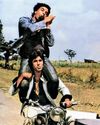
SHOLAY 1975 - THE BIRTH OF THE FANDEMIC
India had seen hits before. But Sholay seared into its collective psyche like a badland bullet. The effect was on a scale never seen before- one film creating a new mass folk culture. And a trail of monster blockbusters that still continues